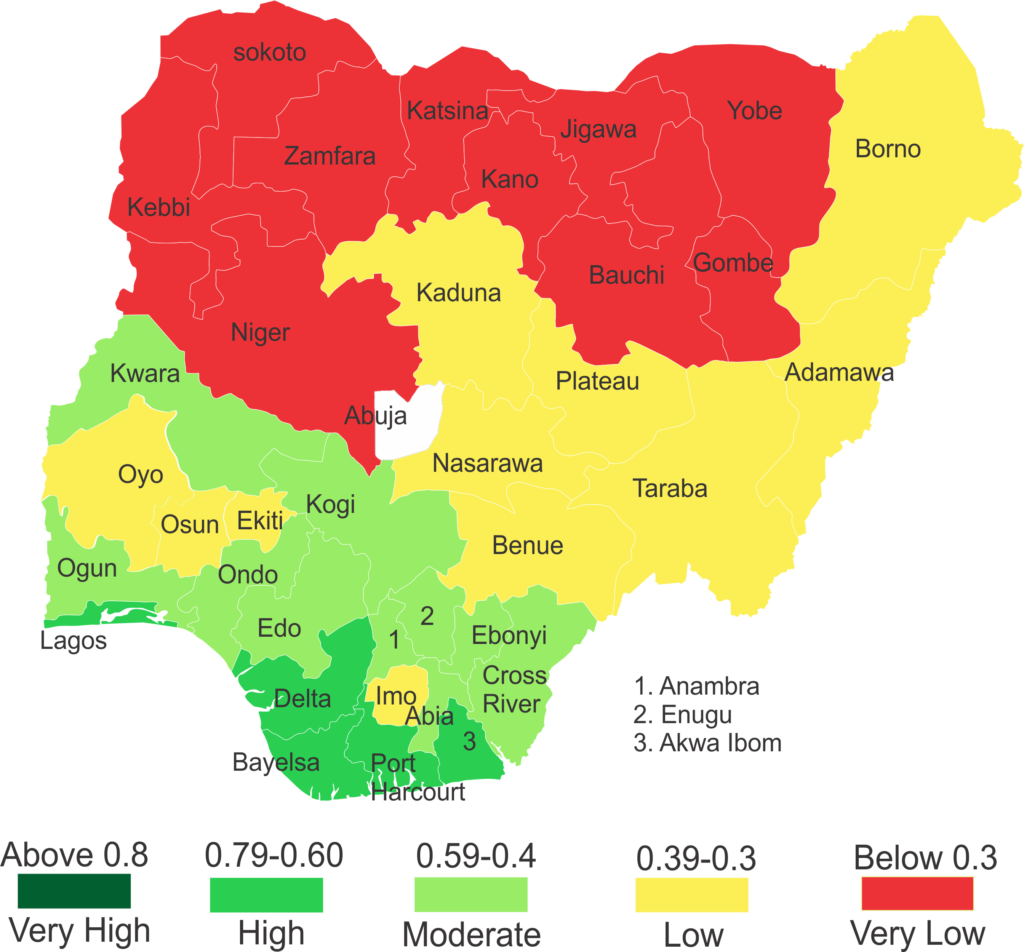This study develops a comparable Human Development Index for subnational government in Nigeria. While built on the UNDP approach, we extend the generic framework to address challenges at the subnational level such as comparable indicator, data unavailability, and estimation technique. The result shows a wide disparity across states in their human development, with states within the southern region recording more impressive performance. We further examine the key economic and political drivers of the observed variations across the state and found fiscal sustainability and geopolitical zoning as the key determinants.
Policy Brief & Alerts

September 14, 2018
Beyond Country-level Averages: Construction of Sub-National Human Development Index for the Nigerian States
This study develops a comparable Human Development Index for subnational government in Nigeria. While built on the UNDP approach, we extend the generic framework to address challenges at the subnational level such as comparable indicator, data unavailability, and estimation technique. The result shows a wide disparity across states in their human development, with states within […]
Read →
Related
Consequences Of School Resources For Educational Achievement
This paper examines the
determinants of educational achievement in a developing country context,
Burkina Faso. We deviate from the extant literature by constructing an
aggregate index of school quality from the observable school resources. Also, we
account for school choice constraints, faced by children especially in rural
areas, as it relates to the geographical inequalities in the distribution of
quality schools. These treatments provide an unbiased estimates of the
relevance of school resources for academic performance. The empirical approach
is based on a two-stage procedure that accounts for supply constraints in
school choice.


